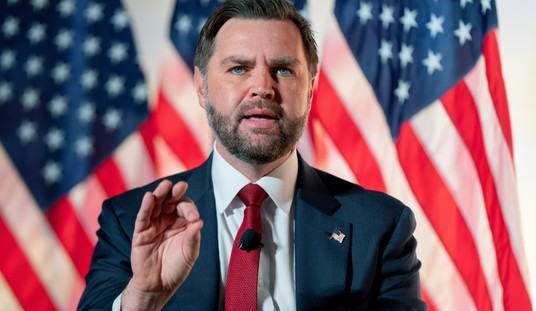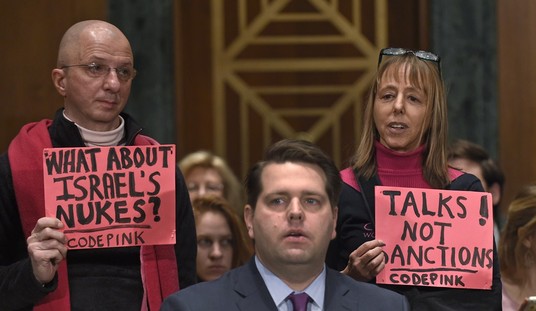It’s official: At a time of gender neutrality, men identifying as women (here), women identifying as men (here), sisters identifying as brothers (here) — and at least one prostate exam identifying as a vagina inspection (here) — one word has come out on top.
And it’s somewhat surprising, because the single-syllable term is as vague as they come.
Odd trait for a Word of the Year, but that’s the point — it means…not much. Nothing and, apparently, everything.
As a writer, I was taught to “use descriptive words.” But times are changing.
Merriam-Webster’s 2019 Word of the Year is “They.”
Here’s a bit of bolstering, courtesy of The Associated Press:
The language mavens at Merriam-Webster have declared the personal pronoun their word of the year based on a 313% increase in look-ups on the company’s search site, Merriam-Webster.com, this year when compared with 2018.
Part of they’s spike relates to — as the assertion goes — 22-year-old model Oslo Grace.
Feast your eyes:
“Even if you do know the birth sex of someone, that doesn’t mean that they are not non-binary and it doesn’t give you the right to expose them in that sense.”
Oslo Grace on how fashion can treat trans and non-binary models better:https://t.co/A5Lo24JXr8#InfiniteIdentities pic.twitter.com/wGXgyb1oP8
— Dazed (@Dazed) February 14, 2019
Oslo describes herself as “transgender non-binary.”
Here’s how the coy catwalker describes working in the industry and trying to get the right pronouns from people…
From Refinery29:
“Most recently, I’ve been trying to figure out my own way of confronting people about my pronouns that’s in a gentle, affirming, and encouraging way instead of in an abrasive way. We could have call sheets that have gender neutral pronouns on them and how to do it, models with name tags and their pronouns, not hiring transgender models just because they’re transgender and hiring them more than once (and not for diversity points) — just stuff like that.”
And compliments of Vogue:
“I experience misgendering with every job I work. I focus on the people who want to learn my pronouns or specifically ask and we go from there!”
Peek into of her journey:
“I have gender dysphoria which means I experience a disconnect between my body and mind based on my sex assigned at birth. My body, mind, and the behavioral expectations put on me as a female child do not align with each other. I consider myself a true mix of a boy and a girl.”
Grace believes sex is reductive:
“People are always trying to find out your birth sex so that they can minimise you down to that and it’s really damaging. Even if you do know the birth sex of someone, that doesn’t mean that they are not non-binary and it doesn’t give you the right to expose them in that sense.”
In 2017, Oslo and a compadre discussed restroom complexities:
Back to “they” and the AP:
[Merriam-Webster Editor Peter Sokolowski] and his team monitor spikes in searches and “they” got an early start last January with the rise of model Oslo Grace on top fashion runways. The Northern Californian identifies as transgender nonbinary, walking in both men’s and women’s shows around the world.
Three months later, they thrived yet again:
Another look-up spike occurred in April, when U.S. Rep. Pramila Jayapal, D-Washington, got emotional while talking of her gender-nonconforming child during a House committee hearing as she advocated for LGBTQ rights legislation.
Not only has the word reigned supreme, it’s gained new meaning — literally — from MW:
Merriam-Webster recently added a new definition to its online dictionary to reflect use of “they” as relating to a person whose gender identity is nonbinary. In October, the American Psychological Association endorsed “they” as a singular third-person pronoun in its latest style guide for scholarly writing.
But really, Noah Webster’s partial namesake is late to the party:
The American Dialect Society, which is dedicated to the study of the English language in North America, named “they” its word of the year for 2015, in recognition of its emergence among people who reject “he” and “she.”
And so, we move closer to “inclusivity.” But only closer:
“There is a long road ahead before language, policy and culture are completely affirming and inclusive,” [GLAAD Director of Transgender Representation Nick Adams] said.
Well, every little bit counts.
At least, that’s what they say.
-ALEX
Relevant RedState links in this article: here, here, here, and here.
See 3 more pieces from me:
A Gay Journalist Slams Hillary Clinton Over Her Lesbianism Denial
Find all my RedState work here.
And please follow Alex Parker on Twitter and Facebook.
Thank you for reading! Please sound off in the Comments section below.












Join the conversation as a VIP Member